- Home
- Jim Eldridge
Jungle Kill (Black Ops)
Jungle Kill (Black Ops) Read online
JUNGLE
KILL
JIM ELDRIDGE
Copyright
EGMONT
We bring Stories to life
Black Ops: Jungle Kill
First published 2010
by Egmont UK Limited
239 Kensington High Street
London W8 6SA
Text copyright © 2010 Jim Eldridge
The moral rights of the author have been asserted
ISBN 978 1 4052 4780 1
1 3 5 7 9 10 8 6 4 2
www.egmont.co.uk
A CIP catalogue record for this title is available from the British Library
Typeset by Avon DataSet Ltd, Bidford on Avon, Warwickshire
Printed and bound in Great Britain by the CPI Group
All rights reserved. No part of this publication may be reproduced, distributed, or transmitted in any form or by any means, or stored in a database or retrieval system, without the prior written permission of the publisher
First e-book edition 2010
ISBN: 978-1-4052-5935-4
For Lynne, without whom this would never have been written.
Contents
Cover
Title Page
Copyright
1
2
3
4
5
6
7
8
9
10
11
12
13
14
15
16
17
18
19
20
21
22
23
24
25
26
27
1
The pistol in Paul Mitchell’s hand was an H&K Mark 23. The man Mitchell was pointing it at stood with his hands clasped to the top of his head, sweat and blood running down his face. He looked terrified.
‘This is the Mark 23,’ Mitch told the man coolly, ‘one of the finest guns in the world. Right now it’s fully loaded and fixed with a silencer. No one will hear it if it fires.’
The man glanced around agitatedly. He had come at Mitch out of the bushes surrounding the building just a few minutes before, levelling an assault rifle. A Kalashnikov – the AK-47. He should have shot Mitch then, and his troubles would have been over. But he’d thought Mitch was unarmed. That was his first mistake. His second mistake was to assume that because Mitch looked young he would have no real fighting experience. Mitch was young, but he’d served in the army since he was seventeen. And his last year had been with Special Forces.
The man’s third mistake was to step towards Mitch and poke him in the chest with the end of the rifle barrel. Never do that to someone who’s been Special Forces trained. First rule of pointing a gun at anyone: if they appear unarmed, there’s no need to put yourself within reach of them. Mitch had knocked the Kalashnikov to one side then kicked the man in the groin. As he went down Mitch snatched the rifle from him and hit him in the face with the butt.
Mitch had then dumped the Kalashnikov on the ground and pulled out the Mark 23. ‘I’m going to throw a mobile phone on to the ground near you,’ Mitch said calmly, keeping the pistol aimed firmly at the man’s head. ‘You’re going to bend down and pick it up. This gun will be aimed at your head the whole time. If you attempt to make a run for it, or use the mobile phone as a weapon or a diversion, I will shoot you. Is that clear? Nod if you understand.’
The man nodded slowly. Mitch reached into his pocket, took out a mobile phone and gently tossed it so it landed on the gravel.
‘You can take your hands off the top of your head, but spread them. Keep them away from your body. Bend down and pick up the phone.’
The man hesitated, then did as he had been told. Mitch kept the gun on him, not wavering.
‘Dial Mr Zakhovsky’s private number.’
‘I don’t have it,’ the man began, but he shut up abruptly when he saw the expression on Mitch’s face.
‘Believe me, mate,’ Mitch snapped, ‘if you don’t have it then you’re no use to me and I might as well kill you right now. So, let’s try that again. Dial Mr Zakhovsky’s private number.’
The man began to dial, his hands shaking as he did so. He was obviously scared of what Mr Zakhovsky would do to him. But Mitch was the one holding a gun on him right now.
He finished dialling and held the phone out to Mitch, but Mitch shook his head and gestured for him to put it to his own ear. When the person on the other end of the line answered, he began to stammer out an apology in Russian.
‘Stop,’ Mitch ordered. ‘Tell him Paul Mitchell is here.’
The man said something more in rapid Russian, then listened, nodding. He held out the mobile to Mitch.
‘Mr Zakhovsky wants to talk to you.’
‘OK,’ said Mitch. ‘Put the phone on the ground, put your hands back on your head and then step back six paces. Slowly.’
The man complied with the order. Mitch followed, equally slowly, keeping the gun trained on the man’s face. When Mitch reached the phone he bent down, picked it up and put it to his ear, still aiming the gun.
‘Hello! Hello!’ a voice was saying impatiently.
‘Mr Zakhovsky,’ said Mitch. ‘I understand you want to see me.’
‘How did you get into my private residence?’ the man on the other end of the phone demanded angrily.
‘That’s my business,’ answered Mitch. ‘I’ll be waiting for you tomorrow at ten a.m. in the lobby of the Excelsior Hotel in Knightsbridge. I think you know it.’
Mitch was taking no chances. Zakhovsky owned quite a few hotels in London but the Excelsior Hotel wasn’t one of them. There’d be little chance of him rigging an ambush there at such short notice. Zakhovsky would come with his own protection, of course, but Mitch would be prepared.
There was a pause, then, ‘Very well,’ Zakhovsky snapped tersely, ‘I will see you tomorrow at ten a.m.’
‘Good,’ said Mitch.
‘And one more thing,’ Zakhovsky sneered. ‘The fool you are holding at gunpoint. He has failed me. Kill him.’
‘Oh no, Mr Zakhovsky,’ replied Mitch, smiling. ‘I don’t work for you yet. We’ll talk about it tomorrow.’
As Mitch hung up, he bent down and picked up the Kalashnikov.
‘You can go now,’ he told the man. ‘Keep walking away from me for a count of one hundred. Slowly. Keep your hands on your head. Don’t look back. If you do, I’ll have to shoot you. Understood?’
The man nodded. He looked like he was going to collapse with relief.
‘Go,’ said Mitch.
The man turned and began walking away, hands still on his head. Mitch gave him a count of ten and then made his exit, back the way he’d come.
2
It had all begun when Zakhovsky’s private secretary had contacted Mitch a few days earlier and asked him to visit Zakhovsky at his mansion in Regents Park. He had told Mitch that Mr Zakhovsky had some bodyguarding work he’d like to talk to him about.
Mitch had agreed to meet Zakhovsky, and had then hit the Internet to find out more about his potential client. He already knew a little because the press liked to document Zakhovsky’s wheelings and dealings, but he knew he’d get more after digging on the web.
Cutting through a lot of rubbish, Mitch had learnt that Leonid Zakhovsky was a Russian who’d made millions – no, make that billions – as the major shareholder of a large energy firm in Russia. When the Russian government began demanding large sums of money from him in taxes, Mr Zakhovsky had moved to Britain, taking most of his money with him.
But none of that explained why Zakhovsky wanted to se
e Mitch. Zakhovsky lived in a huge mansion in the heart of London, protected by state-of-the-art security equipment and with a bunch of Russian heavies at his disposal. But business was business, and a billionaire with money to throw around was always an attractive proposition, so Mitch decided not to question it further.
Then just as Mitch had been getting ready to call on Zakhovsky he’d received a text message. The message had been brief: ‘Danger at Zakhovsky house.’ Even stranger, the text had been in Igbo, one of the tribal languages of Nigeria. Why? Who knew Mitch well enough to know that he spoke Igbo?
Mitch had gone to Zakhovsky’s house anyway, but undercover, his curiosity aroused. And so far his curiosity had paid off. But that was yesterday.
At the Excelsior, Mitch waited as arranged. It was one of those old-fashioned-looking hotels: wood panels, tubs of flowers, cushioned armchairs and settees in the lobby. But behind the scenes the Excelsior was one of the most hi-tech hotels in London, especially when it came to its security and surveillance system– which was one of the reasons Mitch had chosen it for his meeting with Zakhovsky. Still, he made sure that he kept to the basic rules for his own protection, drilled into him during his time in the SAS.
Rule Number One: never sit with your back to the door.
Rule Number Two: never sit near a window, especially a large one. The view may be great but if a bomb goes off outside the flying glass will kill you if the force of the explosion doesn’t.
Rule Number Three: choose a place where you can see the whole room without having to swivel your head from side to side. If you can, pick a corner where two solid walls meet. Brick and concrete. Bullets will tear through stud walls and plasterboard as if they are made of paper.
Mitch chose an armchair in a corner of the room, not low and comfortable, but high-seated enough that he could dive out of it if necessary.
A waitress came over to him, so he ordered a still mineral water, with ice and lemon. He had no intention of drinking it. For all he knew, Zakhovsky had someone in the kitchen on his payroll, ready to slip a little something into anything he ordered, but he knew you can’t sit in the lobby of a place like the Excelsior with no drink in front of you without drawing attention to yourself. The perfect cover was to blend into the surroundings. Be invisible.
Mitch checked his watch. One minute before ten. No sign of Zakhovsky. Mitch wondered if the billionaire would come on his own. He doubted it. Very rich people rarely went anywhere on their own. They always had to have a few bodyguards. Plus a lawyer or two. And someone to carry their money.
The waitress returned with his mineral water and the bill. She gave Mitch a smile, putting them on the small table beside him.
Mitch returned her smile then watched her walk away, all the time wondering if someone was going to use her arrival by his chair as a distraction. But no one seemed to be doing anything unusual. No hands went into inside pockets, no one ducked behind one of the ornate columns. Everything seemed normal and safe. But Mitch knew that there was no such thing in his line of work.
Whether Zakhovsky would actually show up at the Excelsior today depended on how much he needed Mitch. He would be annoyed at having to go through this ritual and Mitch knew that very rich men can be very dangerous when they are annoyed.
On full alert now, his eyes continued to watch the crowds of people passing through the lobby, waiting for the action to happen. It came in the form of a tall black man wearing an overcoat, heading towards Mitch. Everything about the man said ‘Special Forces'. Mitch slid his right hand inside his jacket. The man saw the move and stopped, opening his coat so that Mitch could see he wasn’t armed. Mitch gave the slightest of nods, and the man continued walking. He settled down in an easy chair opposite.
‘Paul Mitchell,’ said the man with a smile. ‘Good to meet you.’ He was American. Mid-twenties at the most. East coast accent. Boston, possibly. ‘I’m Charles Nelson.’
‘Are you a messenger from Mr Zakhovsky?’ Mitch asked.
Nelson shook his head. ‘No,’ he said. ‘Mr Zakhovsky won’t be joining us.’
Mitch stood up. ‘Then I guess our business here is done.’
Nelson held up a hand. ‘Whoa there, Mitchell. The fact is Mr Zakhovsky was never coming. He just helped us out by agreeing to act as an intermediary. To set up this meeting.’
‘And who exactly are you?’
‘Colonel Nelson. US–UK Combined Special Forces. You might have heard of us.’
USUKCSF. Delta Force and the SAS. Black Ops, thought Mitch. He had heard about them during his time in the SAS, but he’d never actually met any of them. At least, not that he was aware of. And for Nelson to be a colonel at such a young age meant he must be something special.
‘I’m out of Special Forces, Colonel,’ said Mitch. ‘I left four months ago. Check my record.’
‘I already have,’ said Nelson.
‘If you’ve read it properly, I think you’ll see the regiment won’t want me back. I killed the wrong guy,’ Mitch said. ‘At least, as far as they’re concerned. To them, I’m trouble.’
‘I wouldn’t be so sure,’ said Nelson. ‘Besides, I think there’s more to it than that. Want to tell me about what happened?’
‘No,’ said Mitch. ‘But I’m curious why we’re having this meeting.’
‘You were in West Africa.’
Mitch nodded, then he smiled. ‘That text message in Igbo. It was you.’
Nelson gave a half-smile. ‘Not me, someone else who talks Igbo. We wanted to see if you still remembered the language. We have a situation in West Africa.’
Mitch shook his head. ‘No, you’ve got a situation in Nigeria. Igbo is one of the country’s languages.’
Nelson smiled. ‘I knew you were the right man for this.’
‘I’m not the right man,’ said Mitch. ‘I left the regiment, remember.’
‘But this isn’t about rejoining the regiment,’ persisted Nelson. ‘And, even if it was, you wouldn’t have a problem. They’ve looked into what happened. They know the truth. Captain Danvers was –’
Mitch held up a hand to stop him.
‘Let’s not talk about it,’ he said. ‘Just get to the point.’
Nelson nodded. ‘How are your other Nigerian tribal languages? Yoruba? Hausa?’
‘Yoruba, not too bad. Depends where it is. The dialect’s different from region to region.’
Nelson nodded again. If he was impressed, he didn’t show it. ‘Do you know much about the current situation in Nigeria?’ he asked.
Mitch shrugged. ‘Civil war, same as always. Rival factions. Mayhem and murder. Oil.’
‘Ever heard of a man called Joseph Mwanga?’
Mitch nodded. ‘When I was there Mwanga was trying to get some sort of unified government together. Yoruba, Igbo, Hausa, everyone, all working together.’
‘But first he has to get elected,’ said Nelson. ‘And there are plenty of people who don’t want to see that happen.’ He paused. ‘In our book, Joseph Mwanga is one of the good guys. Problem is he was kidnapped last week.’
‘Government, rebels or criminals?’ Mitch asked.
‘No one’s sure,’ said Nelson.
Mitch sighed. ‘It doesn’t matter,’ he said. ‘He’s dead by now.’
Nelson shook his head. ‘Not necessarily. There was a sighting two days ago. One of our spy satellites picked out a group of people moving across an area of bush on foot. Our techies have enhanced it and we’re fairly sure that one of the men in the picture is Mwanga. His hands are tied behind his back, but he’s on foot, so that means he can walk.’
‘How big is the group with him?’
‘About twenty. All heavily armed.’
Mitch considered the situation. If Mwanga was still alive, then he was being kept for trade. Either for political reasons, or for money.
‘You’re going to try to spring him?’ asked Mitch.
‘Provided we can find him,’ replied Nelson, nodding.
‘And you want me as
part of the team?’
Nelson nodded. ‘Standard USUKCSF: three Brits, three Americans,’ he said.
Mitch paused. ‘Why me?’ he asked.
‘Because you’re Special-Forces trained. You know Nigeria, the country, the languages and the people. You’re young and fit, resilient, and you’re a survivor. You showed that last night at Zakhovsky’s. You could have continued into the house, but you didn’t. I liked that thing you did with the mobile phone too. And the fact you never once showed up on the CCTV.’
‘How do you know?’
Nelson grinned. ‘I was inside the house with Zakhovsky, waiting for you. The plan was for us to talk there.’
‘How did you get Zakhovsky to take part in the whole business?’ asked Mitch.
‘He owes us one,’ said Nelson. ‘So tell me, Mitch – are you in?’
Mitch thought it over. He’d seen Mwanga just once, when he’d been on leave during a tour of duty in Nigeria. The politician had been making a speech in Kano, the country’s second largest city, in which he urged the people to believe in the idea of a government that distributed the country’s wealth fairly. Taking from the rich and giving to the poor. An African Robin Hood, in a suit and tie. Mitch had no time for most politicians, but as he’d listened to Mwanga he felt that the man was sincere. He was certainly brave, to talk publicly about taking money away from the wealthy. No wonder someone had kidnapped him. And now Mwanga was a prisoner, and prisoners in West Africa often had very short lives.
There was another reason for signing up. If he was honest, Mitch missed the action. Since leaving the force he’d kept active, mostly bodyguarding, but it hadn’t given him that same buzz. He missed being part of a Band of Brothers, guys who loved being in the thick of it, depending on their nerves, adrenalin, and fighting skills to keep them alive. He’d been out of that for too long. Nelson was offering him a way back.
‘OK,’ he said. ‘I’m in.’

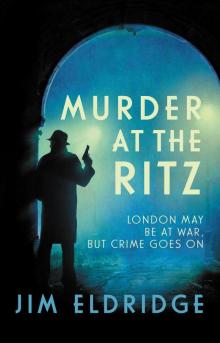 Murder at the Ritz
Murder at the Ritz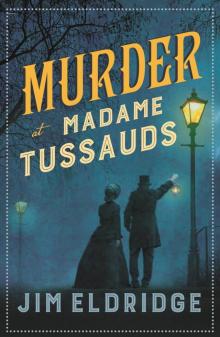 Murder at Madame Tussauds
Murder at Madame Tussauds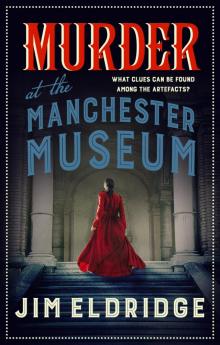 Murder at the Manchester Museum
Murder at the Manchester Museum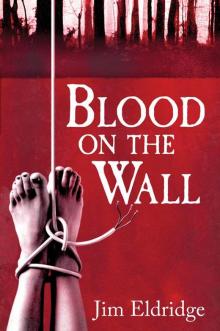 Blood On the Wall
Blood On the Wall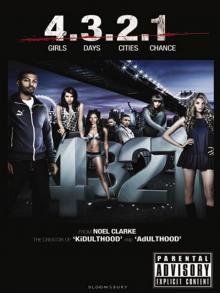 4.3.2.1
4.3.2.1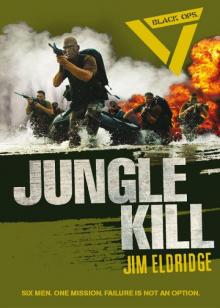 Jungle Kill (Black Ops)
Jungle Kill (Black Ops)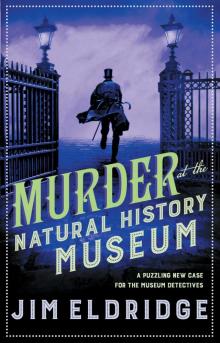 Murder at the Natural History Museum
Murder at the Natural History Museum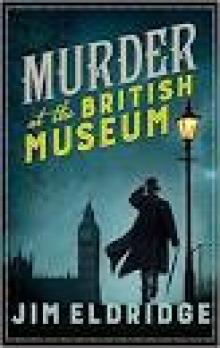 Murder at the British Museum
Murder at the British Museum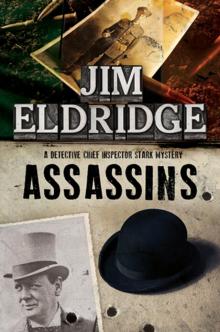 Assassins
Assassins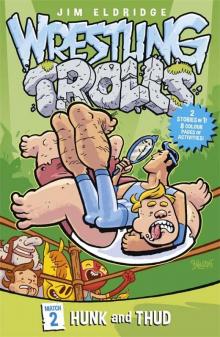 Hunk and Thud
Hunk and Thud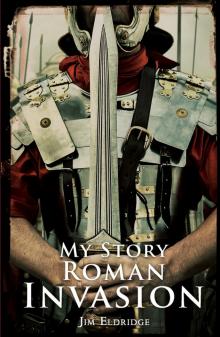 Roman Invasion
Roman Invasion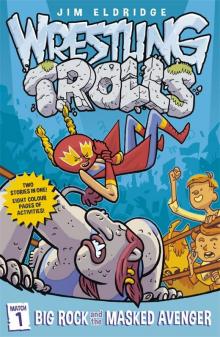 Big Rock and the Masked Avenger
Big Rock and the Masked Avenger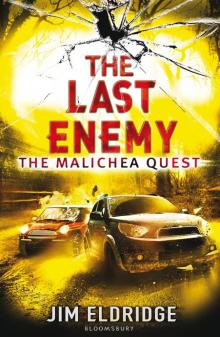 The Last Enemy
The Last Enemy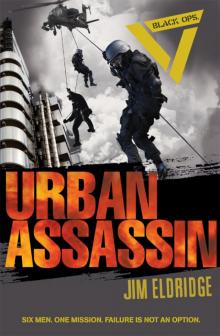 Urban Assassin
Urban Assassin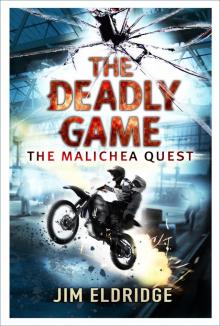 The Deadly Game
The Deadly Game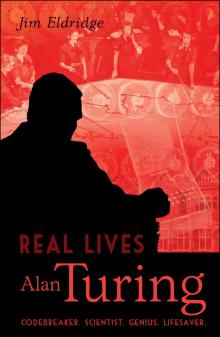 Alan Turing
Alan Turing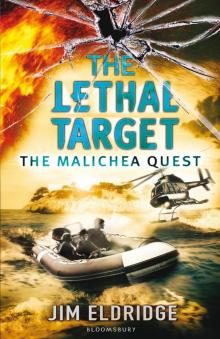 The Lethal Target
The Lethal Target The Giant Rumble
The Giant Rumble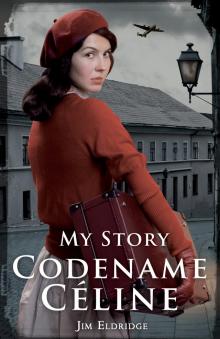 Codename Céline
Codename Céline Death in the Desert
Death in the Desert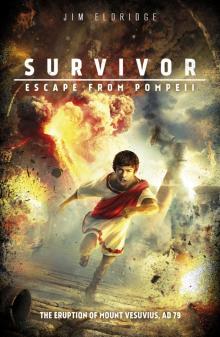 Escape from Pompeii
Escape from Pompeii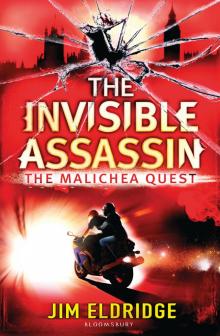 The Invisible Assassin
The Invisible Assassin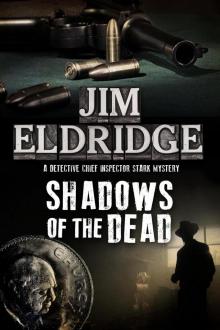 Shadows of the Dead
Shadows of the Dead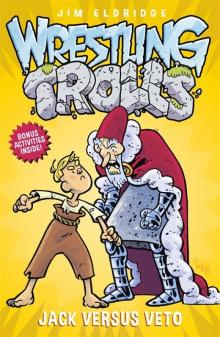 Jack Versus Veto
Jack Versus Veto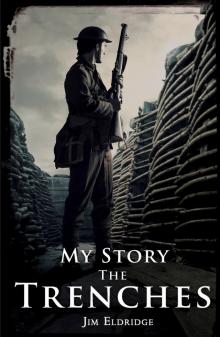 The Trenches
The Trenches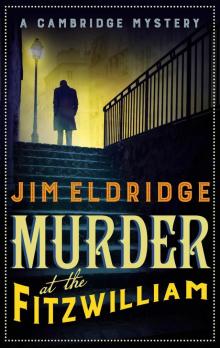 Murder at the Fitzwilliam
Murder at the Fitzwilliam Coming Home
Coming Home